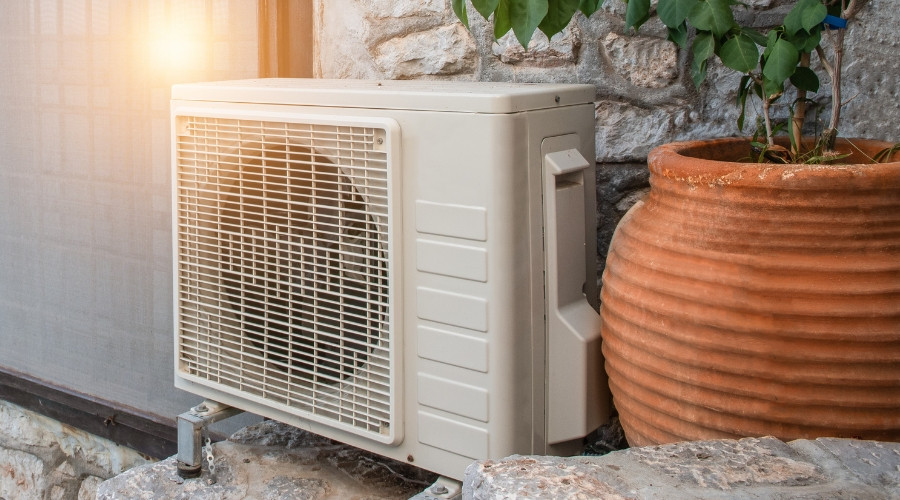Heat Pumps Explained
High utility costs and changing weather patterns make a modern heat pump an appealing all-in-one upgrade for comfort and efficiency. A single system can deliver both heating and cooling, often with quieter operation and more precise control than many legacy setups. This overview explains what a heat pump is, compares common formats such as a ducted heat pump and a ductless heat pump (including a mini split heat pump), outlines the benefits of heat pump installation, and highlights the most common signs that heat pump repair may be needed.
What Is a Heat Pump?
A heat pump is an electric HVAC appliance designed to move heat rather than generate it through combustion. In colder weather, the unit transfers available heat from outdoor air to indoor spaces; in warmer seasons, the process reverses to remove heat from indoors—functioning much like an air conditioner in reverse. This two-way operation allows one piece of equipment to manage year-round comfort.
System design varies by property layout. A ducted heat pump connects to existing supply and return ducts to deliver whole-home conditioning with centralized controls. A ductless heat pump, often called a mini split heat pump, uses compact indoor air handlers to condition specific zones without adding ductwork—ideal for additions, older structures, or areas with unique comfort needs. Both formats rely on the same core technology; selection hinges on distribution goals, building characteristics, and aesthetic preferences. Proper heat pump installation—including correct sizing, duct evaluation where applicable, accurate refrigerant charge, and control setup—helps ensure reliable performance, strong comfort, and efficient operation from day one.
Benefits of Installing a Heat Pump
 A heat pump system offers significant advantages by moving heat instead of generating it, which can reduce energy consumption compared to many resistance-based or combustion systems. Because one unit handles heating and cooling, equipment footprints and maintenance schedules are streamlined, and mechanical rooms or exterior pads can be less crowded. Many systems modulate output to maintain steady temperatures with fewer swings, and in cooling mode they naturally remove moisture to support comfort during humid periods.
A heat pump system offers significant advantages by moving heat instead of generating it, which can reduce energy consumption compared to many resistance-based or combustion systems. Because one unit handles heating and cooling, equipment footprints and maintenance schedules are streamlined, and mechanical rooms or exterior pads can be less crowded. Many systems modulate output to maintain steady temperatures with fewer swings, and in cooling mode they naturally remove moisture to support comfort during humid periods.
Flexibility is another hallmark. A ducted heat pump integrates with existing ductwork to provide even distribution throughout a home. A ductless heat pump or mini split heat pump delivers targeted comfort with zone-by-zone control, helping reduce operation in seldom-used areas and tailoring temperatures to how spaces are actually used. Upgrading controls during heat pump installation—such as adding smart or multi-zone thermostats—can optimize schedules and coordinate capacity with daily patterns.
Additional benefits may include quieter operation, modern filtration options within indoor units, and potential eligibility for rebates or local incentives that help offset upfront costs. For properties replacing aging equipment, converting to a heat pump system can simplify the mechanical setup, improve comfort in difficult rooms, and support long-term energy goals without sacrificing performance.
Signs Heat Pump Repair Is Needed
 Like any mechanical equipment, a heat pump provides warning signs when service is required. Persistent noises—grinding, squealing, rattling, or banging—may indicate worn bearings, loose components, or a failing motor that warrants prompt attention. Weak airflow from vents or indoor heads can signal clogged filters, blower issues, or duct problems in a ducted system. Longer run times, frequent short cycling, or difficulty reaching set temperatures often point to declining efficiency or control faults that call for professional diagnosis and heat pump repair.
Like any mechanical equipment, a heat pump provides warning signs when service is required. Persistent noises—grinding, squealing, rattling, or banging—may indicate worn bearings, loose components, or a failing motor that warrants prompt attention. Weak airflow from vents or indoor heads can signal clogged filters, blower issues, or duct problems in a ducted system. Longer run times, frequent short cycling, or difficulty reaching set temperatures often point to declining efficiency or control faults that call for professional diagnosis and heat pump repair.
Mode issues are another red flag. If the unit remains in heating when cooling is requested, or vice versa, a reversing valve or control malfunction may be at play. Ice buildup on the outdoor unit that does not clear properly, water around the indoor air handler during cooling, or noticeable changes in utility usage without other explanations can all indicate underlying concerns such as airflow restrictions or refrigerant problems. Temperature inconsistencies between rooms—especially in multi-zone or mini split heat pump configurations—can stem from sensor placement, low refrigerant, or mechanical wear.
Addressing these symptoms early helps prevent larger failures and protects compressors and electronics from avoidable stress. A trained technician can evaluate components, restore proper operation, and advise whether repair or a strategic upgrade offers the best long-term outcome for comfort and costs.
About Barker Heating & Cooling
Barker Heating & Cooling is a reliable HVAC company providing expert, on-time service to the communities of Livermore and the Tri-Valley. Call them today for technical expertise and upfront, flat-rate pricing on heat pump services in Livermore, CA, and the Tri-Valley.




